- Home
- Alice Hoffman
Angel Landing Page 25
Angel Landing Read online
Page 25
“You can visit.”
“I wouldn’t step a foot into Florida,” Minnie told me. “Old people live to be a hundred in Russia and Maine, never in Florida. It’s a place for young people,” she said. “Young people and mosquitoes.”
“Then I’ll visit you,” I said.
Minnie waved her hand in the air. “We’ll see.”
While we had our tea our sadness circled the kitchen as if a jar full of blue moths had been let out to spin across the room.
“We’ll think about the party,” Minnie suggested. “That will keep us busy for the next week.”
“Yes,” I agreed softly. “That’s what we’ll do.”
We spent the next few days cleaning house, burning off our anxiety with vacuum cleaners and brooms. After we had made whole-wheat dough for pastries or scrubbed the windows till they shone like crystal, I would go upstairs and pack. Suitcases lined my bedroom, everything I owned was slowly, carefully catalogued and put away. The night of the party came much too quickly, it came just as I was clicking the last suitcase shut. Soon, Beaumont would be driving carloads of old folks out to the house; soon I would be on a southbound bus. But Minnie refused to allow me time to sit down and weep; even when the house was spotless and all the food was set out on china platters, she thought of errands to keep me busy. When she could think of nothing else, Minnie sent me out to the health food store to pick up some last-minute extras we really didn’t need.
I walked down Main Street for the last time; in the morning, before sunrise, before anyone else in the house was awake, Beaumont would drive me to the bus station. I would ride for hours, for days, watching the ice melt, waiting for the palm trees, looking for the white flowers that grew along the highway like weeds.
I stood on the pavement outside the window of the Greenwood Natural Foods Store. When I walked inside it took a while before my eyes adjusted; it took some time before I realized that the cashier, who was recommending golden seal tea to a young woman who complained of frequent headaches and colds, was Jack, the truant.
I picked out the herbs and honey candies Minnie wanted, and when the other shopper had left, I went up to the register. “Jack,” I said, “I never expected to see you here.”
Jack smiled. “Hey this is terrific,” he said. “I didn’t know you were into natural foods.” He looked down at the packages of candy I put on the counter. “This stuff is all natural, sure, no sugar, but you can’t live on sweets alone,” Jack advised.
“This is all for a party,” I explained. “What about you?” I asked. “You’re involved with natural foods?”
“Your aunt was the first to turn me on to it,” Jack confided as he rang up my purchases and packed them in a recycled brown bag. “No more cafeteria lunches of sugar and starch for me,” he smiled. “I turned sixteen and dropped out of school. Though now I’m trying to get a program of natural lunches started in the public school system. What about you?”
“Me?” I said. “I’m going to Florida.”
“Fantastic,” Jack beamed, handing me my change. “I can just imagine the kind of produce you can get down there.”
After I left the store, Jack stood by the window; he smiled and waved like the sunny twin of the boy who had once sat so dejectedly in the Outreach office. I thought about Jack and my other clients all the way home. Even after I had gone upstairs to dress for the party I couldn’t help thinking how well they were all doing without me. Lark reported that Susan was cheerfully attending EMOTE meetings, carrying with her a list of her daily calorie intake. Jack had smiled more at the mention of Florida oranges and lemons than I had seen him smile in all our months together at Outreach.
“You know,” I said to Minnie when we had begun to set out the crystal wine goblets in the dining room. “I’m certain I made the right decision. Leaving Outreach wasn’t a mistake.”
“We never know about these things, do we?” Minnie said.
“Well, tell me what you think,” I insisted, because after this night there would be no going back; the bus would move down the highway right on schedule.
Minnie sat in a dining-room chair and sighed. “What can I tell you?” she said. “How do I know what’s right or wrong? I don’t even know if starting this home for old people is a good idea—I may become so rejuvenated that I live past ninety-five. Who can tell?”
I reached into the bureau drawer where the silverware had been stored since Minnie and Alex first came to Fishers Cove. “I wish I could know what will happen,” I said.
“Not me,” Minnie said. “I don’t want to know. If a fortuneteller came to my door right now, I’d kick her off the porch, I’d toss her back into the snow, I’d throw out her tea leaves and her tarot cards. It’s much better not to know. Otherwise it would be like reading the last page of a novel. Why would you ever bother reading the whole book?”
“You never read novels at all,” I reminded Minnie.
“True,” Minnie said. “I never do. But all the same, I would get rid of that fortuneteller as soon as I saw her at the door.”
If it was I who heard the knocking at the door, if I saw some fortuneteller out on the ice with a blue turban wrapped around her skull and a pack of tarot cards tucked into the sleeve of her Persian lamb coat, I would not be so certain what to do. I would stand at the door, undecided; by the time I sent her away, snow would have blown into the hallway and I would be shivering.
“We don’t have to read tea leaves to know we’ll see each other again,” Minnie said.
“Of course,” I said.
I watched as Minnie laid out the natural candies I had bought. She did it slowly, carefully, as if the design of each candy dish would be terribly important to Arthur and the sisters and the others Beaumont was now bringing over from Mercy. After she had finished and each almond and honeyed bit of pineapple was in just the right place, Minnie went upstairs to dress. When she had left the dining room, and Arthur and the sisters had begun to set up card tables in the parlor, I sneaked downstairs to the basement.
I was certain that Beaumont would not return for some time; still, I did not switch the lights on. I walked down the wooden steps like a nighttime creature afraid of seeing too much. Each step creaked so loudly I was certain that Minnie would hear me invading her tenant’s privacy when she returned to the parlor. But soon the phonograph was turned on, and no one seemed to notice I was missing. I crouched to avoid the pipes which hung from the ceiling, pipes which had forced Beaumont to walk with a permanent stoop. But I didn’t have the boarder’s night sense, and I tripped over my own feet and fell into Beaumont’s lifelong project—his raft. I twisted my ankle and landed inside the raft, sprawled out on my back. I reached into my pocket for a match; then I was able to see, to my surprise, that the raft itself was not made of wood. It was a huge inflated rubber raft, and built right in the middle was a small, perfect house made of redwood and oak. There were two oval windows, a handmade door with a brass doorknob, and dark shingles on the roof. I found a candle on the floor. I lit it and it released the odor of jasmine.
Certainly, in all the years Beaumont had lived in the house, Minnie must have seen the raft. She must have realized that it was much too large ever to be removed from the house—it could have never been lifted up the steps, out the basement door, or squeezed through the one small window. It was, quite obviously, a raft which was never meant to go anywhere at all.
I sat on the side of the raft, my hand out, resting on concrete rather than salt water. In a corner of the basement was a small pot-bellied stove which Beaumont must have planned to add to his raft house, and scattered around with bits of wood and nails, tools that would lead to more work, to perfection. This was a project that would take forever, a project never meant to be finished. If a tornado lifted Minnie’s house right off its foundations, and the raft was finally set free, Beaumont probably would have chosen not to move an inch; he would have raised a tent to protect the redwood from the dangers of snow or rain, and chosen to remain on land.
I sat on the deck like a sailor, then leaned back like a passenger on a lazy cruise. Even when I heard the Mustang pull into the driveway, I didn’t budge; Beaumont and the others would be joining the party upstairs; none of them would guess I was here in the raft which would never sail, never be sighted in the Florida waters, not if I watched from my window at the Blue Parrot Motel for a hundred years.
When I decided to blow out the candle, the scent of jasmine was even stronger. The longer I stayed in the raft the more it seemed to move, just as if it traveled in a China blue sea; I expected my fingers to touch the cresting waves. The raft moved faster all the time, with such enormous speed I wouldn’t have thought of hiding when the basement door opened, even though I had not been invited on board. When the door opened wider and light from upstairs filtered down I didn’t move an inch. I watched for a shadow on the wall as if I were charting stars; I listened for boot heels hitting the wooden basement steps as if I were a sailor expecting lightning.
I was on the raft, dipping through crazy blue waters, guided by silvery fish swimming just above the waves. I saw now that shadow moving down the wall didn’t have Beaumont’s stoop. It wasn’t the old boarder; it was Michael Finn.
“I’m going with you,” Finn said to me.
He reached out his hand and helped me from the raft; I held tight, but there wasn’t any reason to hurry. Soon enough I would be coming home to him through the hot Florida night. After dinner I would write Carter a letter, asking him for news of Angel Landing and letting him know how difficult the struggle was against a power plant that was already functioning, already claiming victims with slow poison.
But at night, in climates as hot as ours, there was no sense in struggling. As soon as darkness fell we felt calm; evenings lasted forever, evenings were ours. And so we would wave mosquitoes away with our hands and walk down the road that led to the Gulf. Finn and I would stare out to sea, thankful that the night had brought cool air from deep inside Mexico; then we would bend to wash our hands in the slow southern current. Later, as we walked back, the stars would be low in the sky, and the song of crickets and frogs would urge us on.
About the Author
Alice Hoffman was born in New York City and grew up on Long Island. She wrote her first novel, Property Of, while studying creative writing at Stanford University, and since then has published more than thirty books for readers of all ages, including the recent New York Times bestsellers The Museum of Extraordinary Things and The Dovekeepers. Two of her novels, Practical Magic and Aquamarine, have been made into films, and Here on Earth was an Oprah’s Book Club choice. All told, Hoffman’s work has been published in more than twenty languages and one hundred foreign editions. She lives outside of Boston.
All rights reserved, including without limitation the right to reproduce this ebook or any portion thereof in any form or by any means, whether electronic or mechanical, now known or hereinafter invented, without the express written permission of the publisher.
This is a work of fiction. Names, characters, places, events, and incidents either are the product of the author’s imagination or are used fictitiously. Any resemblance to actual persons, living or dead, businesses, companies, events, or locales is entirely coincidental.
Copyright © 1980 by Alice Hoffman
Cover design by Tracey Dunham
ISBN: 978-1-4976-5240-8
This edition published in 2014 by Open Road Integrated Media, Inc.
345 Hudson Street
New York, NY 10014
www.openroadmedia.com
EBOOKS BY ALICE HOFFMAN
FROM OPEN ROAD MEDIA
Available wherever ebooks are sold
Open Road Integrated Media is a digital publisher and multimedia content company. Open Road creates connections between authors and their audiences by marketing its ebooks through a new proprietary online platform, which uses premium video content and social media.
Videos, Archival Documents, and New Releases
Sign up for the Open Road Media newsletter and get news delivered straight to your inbox.
Sign up now at
www.openroadmedia.com/newsletters
FIND OUT MORE AT
WWW.OPENROADMEDIA.COM
FOLLOW US:
@openroadmedia and
Facebook.com/OpenRoadMedia

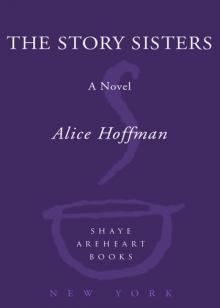 The Story Sisters
The Story Sisters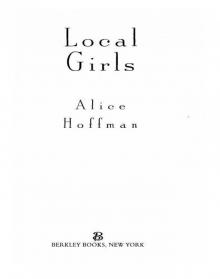 Local Girls
Local Girls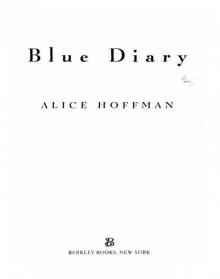 Blue Diary
Blue Diary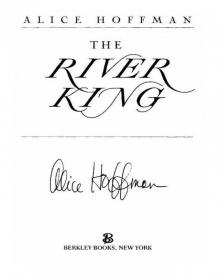 The River King
The River King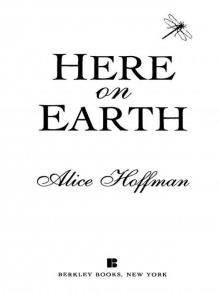 Here on Earth
Here on Earth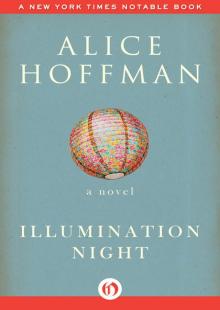 Illumination Night: A Novel
Illumination Night: A Novel The Marriage of Opposites
The Marriage of Opposites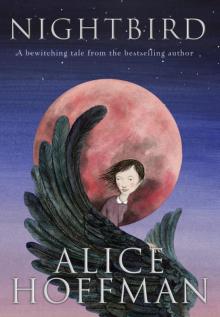 Nightbird
Nightbird Incantation
Incantation Skylight Confessions
Skylight Confessions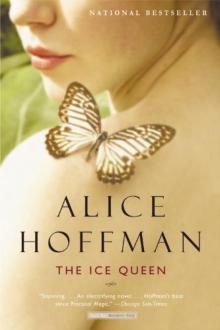 The Ice Queen
The Ice Queen Second Nature
Second Nature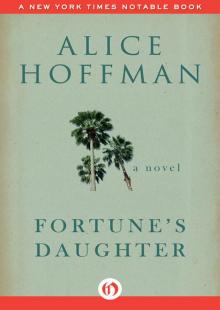 Fortune's Daughter: A Novel
Fortune's Daughter: A Novel Seventh Heaven
Seventh Heaven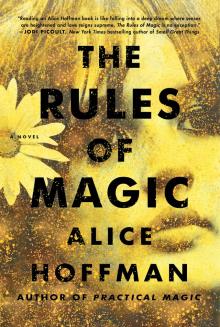 The Rules of Magic
The Rules of Magic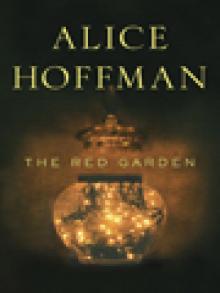 The Red Garden
The Red Garden The Third Angel
The Third Angel White Horses
White Horses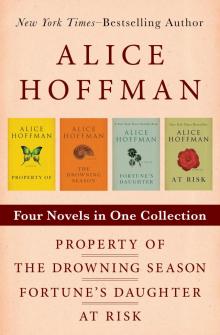 Property of / the Drowning Season / Fortune's Daughter / at Risk
Property of / the Drowning Season / Fortune's Daughter / at Risk Angel Landing
Angel Landing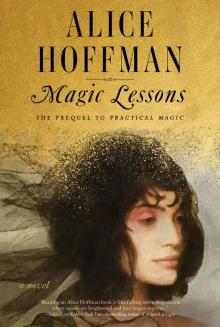 Magic Lessons
Magic Lessons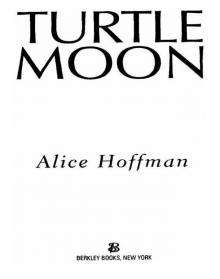 Turtle Moon
Turtle Moon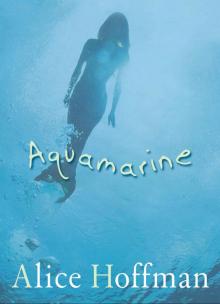 Aquamarine
Aquamarine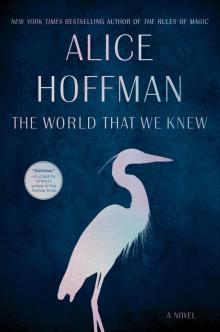 The World That We Knew
The World That We Knew Faithful
Faithful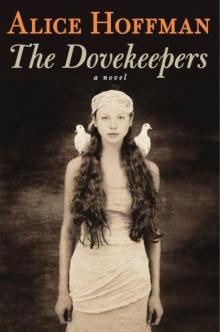 The Dovekeepers
The Dovekeepers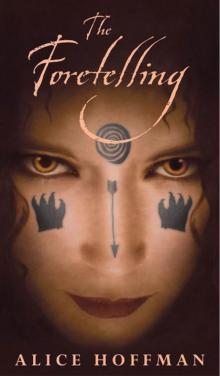 The Foretelling
The Foretelling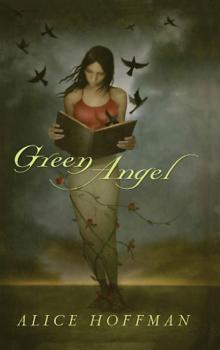 Green Angel
Green Angel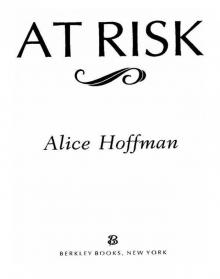 At Risk
At Risk Green Heart
Green Heart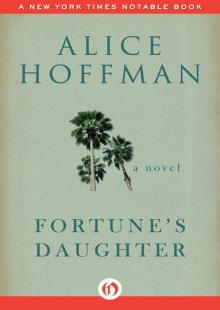 Fortune's Daughter
Fortune's Daughter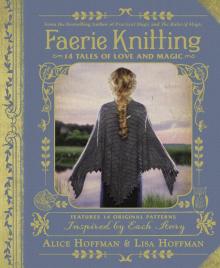 Faerie Knitting
Faerie Knitting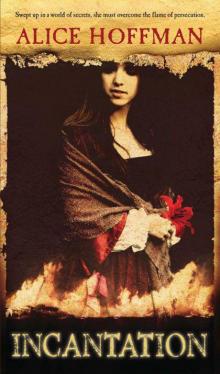 Incantation (v5)
Incantation (v5) Green Witch
Green Witch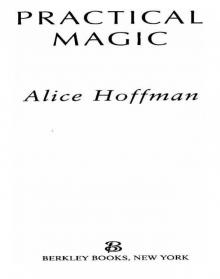 Practical Magic
Practical Magic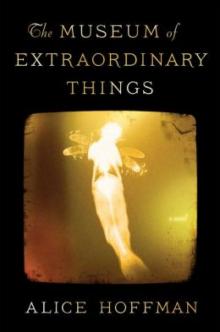 The Museum of Extraordinary Things
The Museum of Extraordinary Things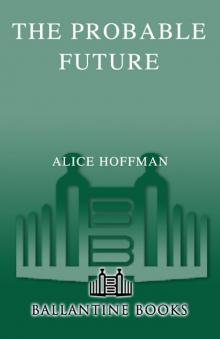 The Probable Future
The Probable Future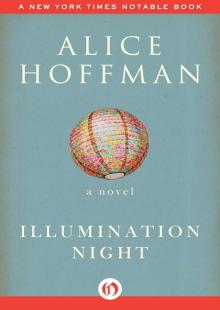 Illumination Night
Illumination Night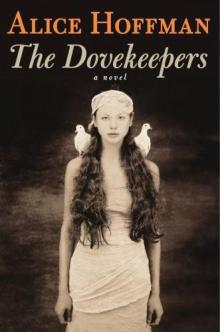 The Dovekeepers: A Novel
The Dovekeepers: A Novel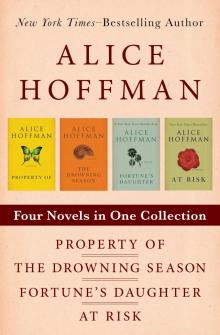 Property Of, the Drowning Season, Fortune's Daughter, and At Risk
Property Of, the Drowning Season, Fortune's Daughter, and At Risk